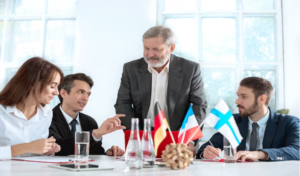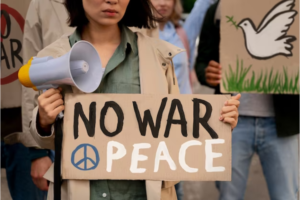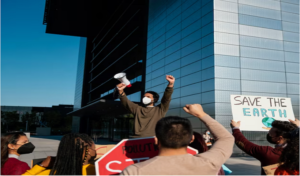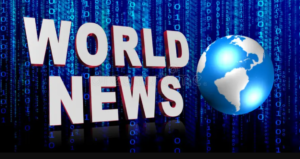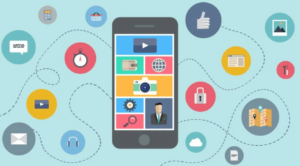How social media shapes public perception on war and conflict
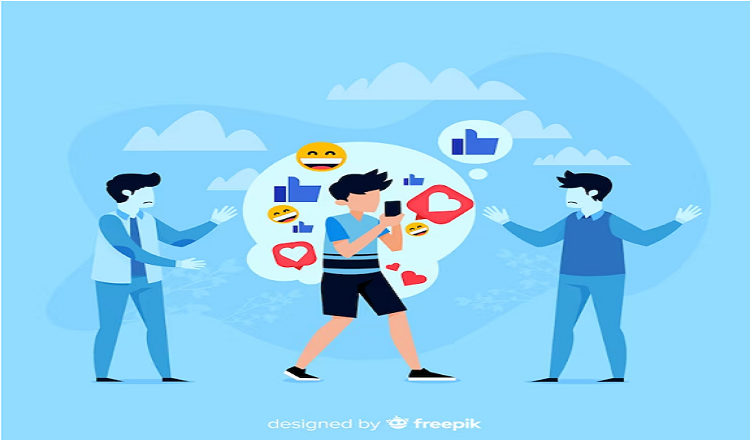
Sure, here’s a start for your blog post about “How social media changes how people in the US think about war and conflict”:
War and strife have always been hard to understand and deal with. But the growth of social media in recent years has added a new layer of difficulty to the mix. The way people get news, talk to each other, and form views has changed a lot because of social media. But how does it change the way we think about war and conflict? How do people think about these important problems because of social media?
This is an important topic because social media is now a big part of our daily lives and has a big effect on how we see the world. It’s no secret that social media can be a great way to get information out and change people’s minds. But when it comes to war and conflict, social media plays an even more important part. People can share first-hand stories of war and conflict on social media, but it can also be used to spread propaganda and false information. So, people need to know how social media affects how they think about war and conflict if they want to be well-informed and active members of a calm and fair society. So, let’s dive into this interesting topic and look at how social media is changing how we think about war and conflict.
How social media affects the way news gets around
The way we get and share news has changed a lot because of social media, especially when it comes to war and conflict. In the past, traditional media like newspapers and TV networks were the only ones who could tell people about war and strife. But social media has made it possible for anyone with an internet connection to share information and views with people all over the world.
One good thing about social media as a source of news is that it gives people who don’t have a voice in traditional media a chance to share their thoughts. People can also get news and information in real time through social media, which can help them know what’s going on. But one problem with social media is that you can’t always trust the quality and truth of the information being shared. People can also use social media to spread lies or fake news, which can have a big effect on how people feel about something.
In conclusion, social media has made more information about war and conflict available to the public, but it is important to look at this information with a critical eye and use tools to check the facts. To make sure that the public gets true and unbiased information, the pros and cons of social media as a source of information must be weighed.
How social media affects how people think and feel
Social media has become a powerful way to change how people feel about a wide range of problems, like war and conflict. Social media sites offer users a wide range of content, such as news articles, videos, and content made by users. This content can change how people think about war and conflict.
One way that social media platforms affect how people feel about war and conflict is through algorithms that sort and rank content based on a user’s search past and how often they interact with the platform. This can lead to a “filter bubble,” where people only see information that confirms what they already believe. This can make people’s views more extreme.
Influencers and user-generated content also have a big impact on how people think and feel. People with a lot of followers on social media can use their stage to spread certain stories or points of view about war and conflict. Eyewitness accounts and pictures taken by other people can give a more real and personal view of war and conflict.
In conclusion, social media platforms and the material they share have a big effect on how people feel about war and conflict. It’s important to understand the role of leaders, user-generated content, and algorithms if you want the public to be better informed and more involved.
How governments and armed organisations use social media
Governments and military groups all over the world have realised that social media can be used to change people’s minds and spread their views. In the United States, government organisations and the military are using social media more and more to reach people in new ways.
Social media makes it possible for these groups to connect directly with the public and spread their views without going through traditional media. They can use social media to spread news and information, build relationships with audiences, and change how people think about war and conflict-related problems.
But there are ethical questions about how states and the military use social media. For example, there might be questions about how things are done, who is responsible, and if there is propaganda. Social media can also be used by governments and military groups to spread false information or change public opinion, which can have serious effects.
In conclusion, social media can be a powerful way for governments and the military to reach their followers, but there are important ethical issues that must be considered. It is important for these groups to use social media in a responsible and open way so they don’t break the public’s trust and hurt democratic ideals.
How social media affects attempts to keep the peace
Social media has the ability to make a big difference in efforts to promote peace and end conflicts. Social media sites give people from different parts of the world a place to meet, share their stories, and have conversations that can help them learn more about other points of view.
Social media can be used to spread information about peacekeeping activities and get more people to help. It can also help people and groups working for peace be heard by more people and spread their messages to a bigger audience.
There have been successful efforts to keep the peace made possible by social media. For example, the #BringBackOurGirls movement brought attention to the kidnapping of schoolgirls in Nigeria by Boko Haram. Social media has also been a key part of the peace talks between the Colombian government and the Revolutionary Armed Forces of Colombia (FARC), helping to build public support for the peace process.
In conclusion, social media has the ability to be a very useful tool for promoting peace and resolving conflicts. Social media can help make the world a more peaceful place by making it easier for people to talk to each other, share information, and make their views heard.
How social media affects how people think and feel
Social media sites have become important ways for many people to get information, including about war and conflict. In a number of ways, these platforms change the way people think about these problems. For example, algorithms on social media can filter material so that users only see posts that match their interests and beliefs. This creates so-called “echo chambers” that make people’s opinions stronger. Social media can also be used to spread fake news and false information, which can further change how people think.
Influencers and user-made material also have a big impact on how people think about war and conflict. Influencers can use their platforms to share their thoughts and ideas with a wide public. Photos and videos made by users can also be widely shared, giving new and often first-hand views on conflicts.
Overall, social media has a big impact on how people think about war and conflict, with influencers and user-generated material becoming more and more important. Because of this, it is important for people to be critical about the information they take in and look for different points of view on these complicated problems.
How governments and armed organisations use social media
In the US, governments and military groups are using social media more and more to influence public opinion and spread their views. Through social media, people can talk directly to citizens and the media, skipping the usual gatekeepers. It also gives people a way to reach a larger audience and take charge of how issues are told.
But using social media to try to change people’s minds is questionable from an ethical point of view. Spreading lies and false information can change how people think and hurt their trust in institutions. There are also worries about invasions of privacy, control, and the fact that social media could make conflicts worse.
Because of this, it is important for states and the military to use social media in a clear and responsible way. This means being honest about the information that is being shared, not spreading false information, and protecting people’s right to privacy and freedom of speech. It’s also important for people to think critically about the information they get and look for different points of view on issues.
How social media affects attempts to keep the peace
Social media could be a big part of making the USA a more peaceful place and helping to solve problems. Social media can help people and groups talk to each other and understand each other better by giving them a place to share their thoughts and connect with others.
Social media has helped with a number of successful attempts to keep the peace. For example, the #BringBackOurGirls campaign on Twitter took the abduction of Nigerian schoolgirls by Boko Haram to the attention of people all over the world, which put more pressure on the Nigerian government to do something. Also, the #WhiteHelmets movement on social media helped bring more attention to the work of first responders in Syria, which led to more people helping them.
Overall, social media has the ability to help bring about peace and end conflicts, especially when it is used alongside traditional diplomatic and peacekeeping efforts. Social media can be a powerful tool in the search for peace because it can make the words of those working for peace louder and bring attention to conflicts that might not have been noticed otherwise.
How troops and civilians’ mental health is affected by social media
Social media can have a big effect on the mental health of soldiers and civilians in the United States who have been touched by war or conflict. Exposure to violent images and material can cause anxiety and post-traumatic stress disorder (PTSD) symptoms. Social media can also make people who have been through war or conflict feel even more alone and isolated.
Getting rid of mental health problems caused by social media use is not easy. Social media platforms often care more about user engagement than their users’ well-being, and it can be hard to stop harmful material from spreading. Also, mental health problems caused by social media use may be seen as shameful, making it hard for people to get help.
People and organisations need to be aware of how social media could affect their mental health and take steps to protect their well-being. This means putting limits on how much you use social media, getting help from mental health professionals, and speaking up for more responsible ways to use social media.
Conclusion
In the end, social media has become an important part of how people in the US think about war and strife. Social media platforms have changed the way we understand and talk about war and conflict. For example, they help spread information and support military efforts.
But social media also has problems, like the chance that it will spread false information and make mental health problems worse for people who have been through war or violence. When governments and armed groups use social media to influence public opinion, they also have to deal with ethical issues.
It is important for people and groups to understand these issues and use social media in a responsible way. This means knowing how social media affects mental health and taking steps to lessen its bad effects, as well as pushing for more responsible ways to use social media.
Overall, people need to know how social media affects how they think about war and conflict if they want to talk about these important problems in the US and around the world in a way that is informed and helpful.
Read More You May Like:
- Examining the root causes of recent conflicts around the world
- Examining the psychological effects of war on soldiers
- Delving into the rise of civil conflicts and its implications
- Defining international laws surrounding war and its effect on nations
- Analyzing the role of the UN in promoting peace and preventing conflicts

